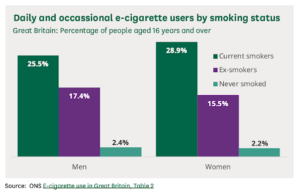In a recent and notable shift from the typical negative media narrative surrounding vaping and harm reduction in Germany, Der Spiegel published a story that stands out. The article detailed a reporter’s journey of quitting smoking through vaping, presenting an accurate and relatable perspective on the relative risks of vaping compared to smoking. This piece, available here, is a rare gem in a landscape often clouded by scepticism and misinformation.
However, the response to this article, particularly from prominent political figures, was less than encouraging. Renate Künast, a leading politician from Germany’s Green Party and former Consumer Protection Minister, criticised the article, implying it was more of a promotional piece than a genuine story of smoking cessation. Her reaction reflects a broader issue in German health politics – a reluctance to acknowledge the potential benefits of vaping as a tool for quitting smoking.
This stance is increasingly at odds with the growing body of scientific evidence supporting vaping as an effective smoking cessation method. For instance, last week, the Cochrane review reaffirmed with high certainty that nicotine vapes help more people quit smoking than traditional Nicotine Replacement Therapies (NRTs). Despite this, scepticism and outright denial persist in the German political landscape.
Moreover, the UK’s Office of National Statistics has effectively debunked the gateway theory, showing that almost all vapers are either current or former smokers. This data challenges the narrative that vaping is a path to smoking, instead highlighting its role in helping smokers quit.

The reluctance of German health politics to embrace vaping as a harm-reduction tool is increasingly problematic, especially when compared to the progress made in other countries. Sweden, for example, is on the brink of becoming smoke-free, largely thanks to its progressive approach to harm reduction. In contrast, Germany continues to grapple with over 100,000 smoking-related deaths annually.
It’s high time for a paradigm shift in German health politics. By looking to successful models like Sweden’s, Germany can adopt a more effective and compassionate approach to smoking cessation. Embracing harm reduction strategies, including vaping, could save countless lives and significantly reduce the public health burden of smoking.
The story in Der Spiegel is more than just an individual’s success; it’s a call to action for policymakers to reconsider their stance on vaping and harm reduction. As evidence mounts and other nations make strides in reducing smoking rates, Germany must not lag in adopting policies that prioritise public health and embrace proven harm reduction strategies.






Jedna odpověď